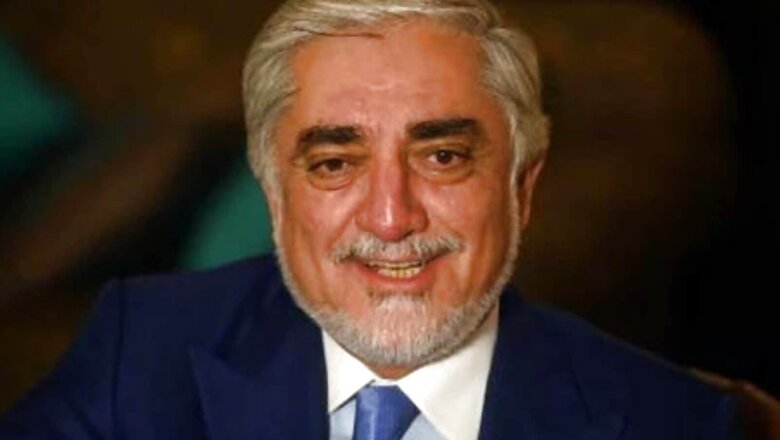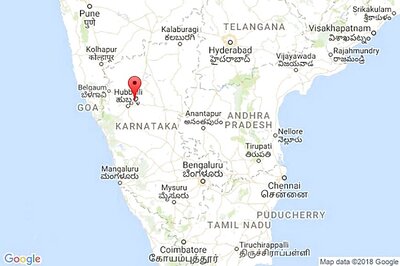
views
Abdullah Abdullah, the chairman of the Council for National Reconciliation under the previous Afghan government, Friday said the agreement between the US and the Taliban was "weak on peace". This, he said, along with factors such as "bad elections", corruption and mistrust between former president Ashraf Ghani and the other leadership led to the present situation in the country. Calling Ghani a "traitor" for fleeing the country, Abdullah, who remains in Kabul, said that going away like Ghani was akin to joining a national traitor "which would be the last thing I would do in life". "Staying in Kabul was a deliberate decision to be with the people, who had supported us and respected us as leaders," Abdullah said while speaking at the India Today Conclave 2021 via video link.
"I don't regret staying here, I am a citizen of the country and I do not expect any role in the system. I stayed back just to be with the people and my residence is an address for the people and I am in contact with friends outside the country as well," he said. The former chief executive officer of Afghanistan said the agreement between the US and the Taliban in Doha was "weak on peace". There were "so many flaws in our own system, bad elections one after another, Ghani not trusting people and mistrust between him and the leadership, corruption were some of the factors" that led to the situation in which the country is today, he said.
"At the same time, when the US signed a deal with the Taliban under the Doha Agreement, the peace element of it was very weak," Abdullah added. Asked about India's concerns over terrorist attacks emerging from the country under the patronage of the Taliban, Abdullah said the starting point would be to engage with them and raise these concerns with them directly.
"That will be the way forward," he added. On the Taliban's close relations with Pakistan, he said the Taliban has had a colossal relationship with the neighboring country, which goes back to three decades. Talking about the situation in Kabul, he said that the humanitarian situation is the most serious throughout the country. With the recent development, it has exacerbated manifold and the country is in need of humanitarian assistance, Abdullah said. The economy is not moving and the banking system needs support, he said.
Pointing to the blast that went off Friday at a mosque packed with Shiite Muslim worshippers in Afghanistan's Kunduz province killing several people, Abdullah said that's the tragedy of the Afghan people and "we are facing security challenges with Daesh (ISIS) taking shape in the country." Expressing hope for his country, Abdullah said, "I see overwhelming challenges, but there are opportunities and can we capitalise on them as a nation, only time can tell." At another session of the India Today conclave, ex-CIA Director General David Petraeus said any "cheer in Pakistan" over the Taliban takeover of Afghanistan would be short-lived. He said the situation in Kabul was heartbreaking as the Afghan people were suffering once again under the Taliban. "Pakistan will have millions of Afghan refugees on its soil as it did 20 years ago. It will be difficult for Pakistan as their financial condition is not good," Petraeus said.
The Afghan people are staring at a humanitarian catastrophe as the economy has collapsed and aid has dried down, he said. "A very cold, dark and hungry winter lies ahead for Afghanistan and its people. There has been persecution of the minority population, most of whom are ethnic Hazaras. Taliban fighters are going house-to-house to hunt those who worked with the US and Afghanistan governments," said Petraeus.
Petraeus was appointed by former President George W Bush to head multinational forces in Iraq (2007-08) and later served as commander of US and NATO forces in Afghanistan (2010-11). He was later director of the Central Intelligence Agency (CIA, 2011-12). In his remarks, Petraeus also hinted that there were differences between the Taliban and the Haqqani network. "Mullah Abdul Ghani Baradar, co-founder of Taliban, is not in Kabul. The Haqqanis are controlling Kabul and East Afghanistan. The Haqqani outfit is also not going to accept orders from Islamabad. This will continue to be a chaotic scene," Petraeus said.
Read all the Latest News , Breaking News and IPL 2022 Live Updates here.




















Comments
0 comment